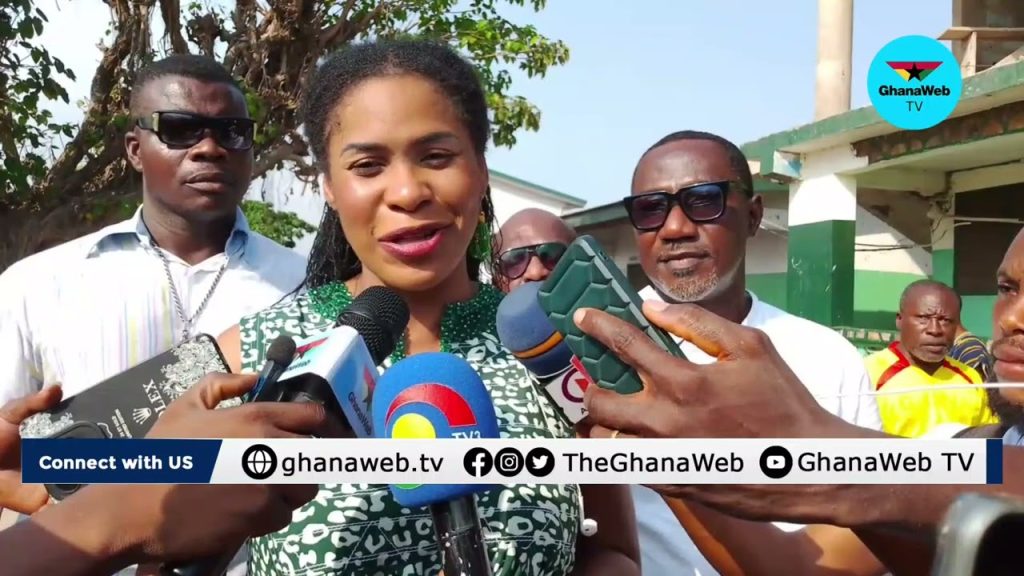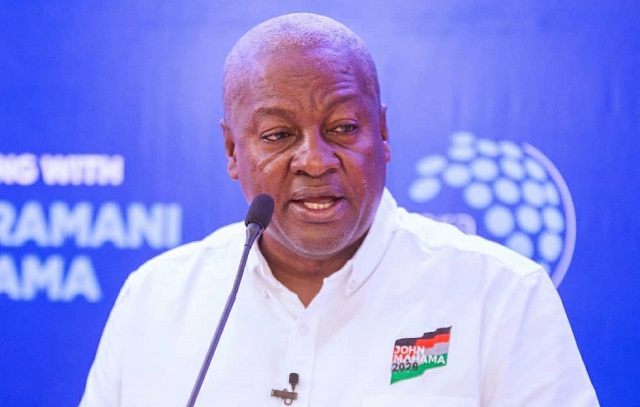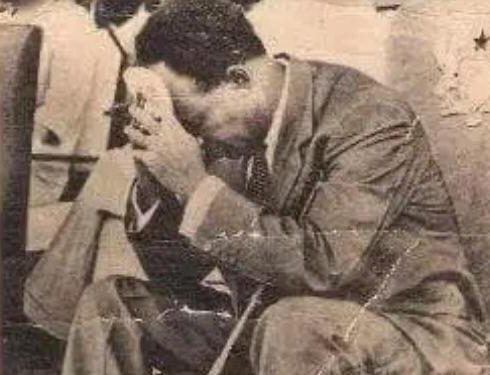Who Would be the Tema Mayor: The People Can Choose but the President Decides. Tribute to Article 243 and Mahama’s Complicity
Oswald K. Azumah*
ABSTRACT
After an acrimonious electioneering period months ago, another government is in place and the president is still in the process of setting up his administration. The most recent step in setting up the government is the appointment of Metropolitan, Municipal and District Chief Executives, hereafter referred to as Mayors. This paper discusses the president’s role in the local government set-up of Ghana and re-echoes the need for fiscal and political decentralization.
Key words: decentralization, mayor, fiscal
Special thanks to Esther Wayo for reviewing the manuscript.
- INTRODUCTION
Having written on this topic twice already,[1] I do not intend to belabour arguments already advanced in the previous two essays. However, recent controversy, up to and including felony arson[2]—surrounding the appointment of Mayors from the Flagstaff House—necessitates highlighting key arguments in favour of ensuring beneficial decentralization in Ghana.
This paper is partitioned into two parts: the first part argues that legislators have to tackle proper fiscal decentralisation, and the second part posits that political reform must follow to allow election of Mayors by universal adult suffrage.
- FISCAL CENTRALIZATION AND THE NEED TO DECENTRALIZE
Celebrated Auditor-General Daniel Domelevo (2016 to 2020) during his tenure as Auditor-General, decried the centralized nature of fiscal governance in Ghana, describing it as one of the chief architects of endemic corruption in the public service.[3] Mr. Domelevo repeatedly called for fiscal decentralisation in a bid to tackle the inefficiencies and malfeasance attached to the centralised nature of governance across the country.
Speaking at a lecture by Centre for Social Democracy (CSD-Ghana) in collaboration with the Friedrich Ebert Stiftung in 2021, Domelevo noted:
“To ensure true and proper accountability, we need first to know the total resource envelope given to each region or district in the country. In other words, I am calling for a district budget, which includes the budgetary allocation for their roads, their health facilities, their schools and this district budget comes together with that of the regions to constitute the regional budget.”[4]
The former Auditor-General has also attributed the “ghost name” canker which repeatedly cripples subsequent governments to the overly centralised public service.
Another problem of the centralisation of fiscal governance is the inconvenience it causes persons who reside in remote towns and villages. In Ghana most prominent businesses are located in the capital city, Accra. Domelevo in another lecture captured the problem in his speech as follows:
“If anyone gets employed in any remote village in Ghana, he or she has to come all the way to Accra to be captured on the payroll.”
- WASTE MANAGEMENT
It does not end there. Ghana’s fiscal governance is so centralised that even waste management for all local government assemblies across the country is centralised. Investigative journalist Manasseh Awuni has for years, been fighting a lone campaign to get successive governments to dump Zoomlion, a waste management company, which is responsible for managing waste for all the assemblies in Ghana.
Such an onerous task for one person!
Findings from Azure’s reports show that the most recent government contract with Zoomlion involves a sum of GHS850 (56USD) per month for a sweeper. The company retains GHS600 (39USD) and pays GHS250 (16USD) to a sweeper a month.
In a recent publication, the journalist called on the newly appointed Chief Executive of the Youth Employment Agency (YEA) not to renew the contract with Zoomlion, urging the YEA and the government to prioritise decentralising waste management and ensure the assemblies employ the services of different companies.
The foregoing fiscal decentralising conversation is important because without proper fiscal decentralisation, experts like Domelevo assert that political decentralisation would be an exercise in futility. This is because without proper revenue flow into the accounts of local assemblies, political decentralisation would only achieve cosmetic effect. The election of Mayors must thus move hand in hand with fiscal decentralisation.
- ELECTION OF MAYORS
After fiscal decentralisation is achieved or before determining a point in time when that is done, lawmakers must then prioritise an amendment of Article 243 of the Constitution which empowers the President to appoint Mayors or Chief Executives for every District, Municipal and Metropolitan Assembly across the county.
As previously argued in my previous papers cited above, it is a matter of urgency to have citizens vote for their closest senior government officials. It is nearly barbaric for the President to sit in the Flagstaff House and nominate for approval by assembly members, Mayors for all towns and cities, constituting assemblies across the country.
Most regrettable is that when these nominees are rejected, they still have the chance of demanding multiple votes until they are approved, sometimes, under dubious circumstances as happened in Ada in 2017 with President Akufo-Addo’s nominee[5].
So, what next?
Article 243 of the Constitution is not entrenched. This means Members of Parliament can vote to amend it and pave way for the election of Mayors instead of the President appointing them—a situation which more than not, causes disaffection.
In 2019, the country came so close to amending this albatross of a Constitutional provision but disagreements over whether to allow political parties sponsor candidates for local government elections led to the then President, Nana Akufo-Addo, abrogating the entire amendment process.[6]
Another Constitutional provision, Article 55 (3) bars political parties from sponsoring candidates or otherwise partaking in local government elections. Former President Akufo-Addo and the New Patriotic Party sought to have this entrenched clause amended in a referendum ahead of the amendment to allow election of Mayors. The proposal had bipartisan support; but a last-minute turnaround by the then opposition National Democratic Congress meant the referendum, which required a supermajority to pass, was doomed to fail.
Akufo-Addo cancelled the referendum and consequent amendment of Article 243 by Parliament which would have allowed Mayoral elections.
- THE TEMA MAYOR CONTROVERSY
The current President, John Mahama, has begun Mayoral nominations and as mentioned, some of his nominations are met with fierce opposition. One of these is Ebi Bright’s nomination as Mayor of Tema. Dissenting locals insist on a different candidate, but the president is unfazed.[7]

Allowing electorates to choose who heads their local government will eliminate the burning down of political party offices and needless protest marches which has characterised such nominations. President Mahama must lead the charge to achieve this amendment as part of his “re-set” agenda; lest his complicity is confirmed as that of Akufo-Addo.
- CONCLUSION
I have argued in time previously that mayoral elections must be held on partisan basis and midway through the presidential term. I reiterate same calls. In addition, I submit that regional ministers must be phased out to allow for election of heads of regions in gubernatorial polls, however so they may be described. Additionally, political and fiscal decentralisation must move in tandem with each other. We cannot elect MMDCEs and allow a government which is hostile to the leadership of an Assembly deny them funds as a bargaining chip. Dr. (Osagyefo) Kwame Nkrumah’s “seek ye first the political kingdom and everything else shall be added unto it,” will not be helpful in this discourse.
The writer is a Journalist and Political Analyst.
CLICK HERE TO DOWNLOAD THE PAPER
* Oswald Azumah is a Journalist, Political & Security Analyst.
[1] Oswald Azumah, ‘The MMDCEs list, & Ghana’s local government architecture’ (28 September 2021) https://oswaldazumah.com/2021/09/the-mmdces-list-ghanas-local-government-architecture/ accessed 24 April 2025. Oswald Azumah, ‘US Midterms & Reflections on Ghana: The Local Government & Accountability in Governance’ (8 November 2022) https://oswaldazumah.com/2022/11/us-midterms-reflections-on-ghana-accountability/ accessed 24 April 2025
[2] Castro Senyalah, ‘Talensi youth burn NDC office due to disagreement over DCE nominee’ (15 April 2025) https://3news.com/news/crime/talensi-youth-burn-ndc-office-due-to-disagreement-over-dce-nominee/ accessed 24 April 2025
[3] Ghana Audit Service, ‘Decentralize public financial management to reduce corruption – AG’ (20 September 2018) https://audit.gov.gh/6/15/39/decentralize-public-financial-management-to-reduce-corruption–ag accessed 24 April 2025
[4] BusinessGhana, ‘Fiscal Decentralisation: Domelevo calls for district, regional budgets’ (10 August 2021) https://businessghana.com/site/news/General/241720/Fiscal-Decentralisation-Domelevo-calls-for-district-regional-budgets accessed 24 April 2025.
[5] Emmanuel Kwame Amoh, ‘Invisible Forces on rampage at Ada East DCE confirmation polls’ (3 November 2017) https://3news.com/news/invisible-forces-rampage-ada-east-dce-confirmation-polls/ accessed 24 April 2025.
[6] Graphic Online, ‘President Akufo-Addo calls off December 17 referendum for lack of broad national consensus’ (2 December 2019) https://www.graphic.com.gh/news/politics/president-akufo-addo-calls-off-december-17-referendum-for-lack-of-broad-national-consensus.html accessed 24 April 2025
[7] Leticia Osei, ‘Mahama nominates Ebi Bright, Ludwig Totimeh others as MCEs’ (23 April 2025) https://citinewsroom.com/2025/04/mahama-nominates-ebi-bright-ludwig-totimeh-others-as-mces/ accessed 24 April 2025







